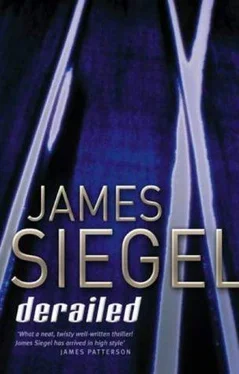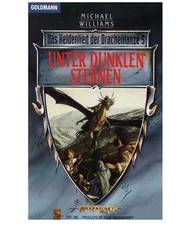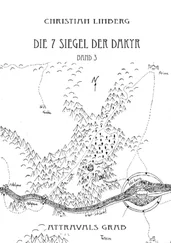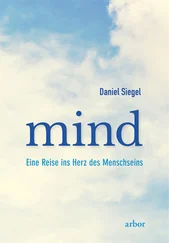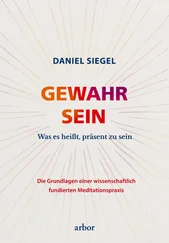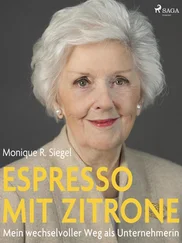“What happened, please?”
“She was hypoglycemic,” I said. “She had an episode.” Anna was sitting on the examining table, virtually slumped against me.
“You administered the shot?”
“Yes.”
“Uh-huh . . .” He was examining her even as we spoke, doing all the things doctors do — heart, pulse, eyes, ears — so maybe he was competent after all. “We’d better take her blood sugar, no?”
I wondered if he was asking me for my medical opinion or simply being rhetorical.
“We took it before we came. One forty-three. I don’t know what it was before she . . .” I was going to say passed out, fainted, became unconscious but felt reticent to say it in front of Anna. I noticed a bruise had already formed where Deanna had given her the shot and thought that other parents who bruise their children are brought up on charges and locked away.
“One forty-three, yes?”
“Yes.”
“Well, we’ll see. . . .”
He asked for Anna’s hand, but Anna had no intention of giving it. “No,” she said, and meant it.
“Come on, Anna, the doctor has to take your blood sugar to make sure everything’s okay. You do this four times a day — it’s no big deal.”
But of course it was a big deal. Because she did it four times a day and now they were asking her to do it a fifth — actually sixth, since I’d taken it before we came here. It was a big deal because she was back in the hospital where she’d first been told she wasn’t like everyone else, that her body had this terrible deficiency that could kill her. It might not be a big deal to the doctor, or even to me, but it was to her.
Still. She was sitting in LIJ at two in the morning because she’d almost died, and now the doctor needed a blood sample. “Come on, Anna, be a big girl, okay?” remembering back to those first days at home when I’d have to beg her to give me her arm, sometimes having to take it from her, brute force preceding brute pain, each time convinced I was committing the worst kind of assault.
“I’ll do it myself, ” Anna said.
The doctor was losing patience now; so many patients and so little time. “Look, miss, we have to — ”
“She said she’ll do it herself,” I said, remembering something else about back then. How after her diagnosis, Anna had spent two weeks here learning how to deal with this thing called diabetes, with hospital protocol demanding that all patients administer one insulin shot to themselves before they could be discharged. And Anna, who feared needles the way other people fear snakes, or spiders, or dark cellars, had made me promise that she wouldn’t have to do that. And I’d said, I promise. And on the day she was due to be discharged, the nurse had come in and asked Anna to do it—to fill up the shot with two kinds of insulin and inject it herself into her already bruised arm. And at first both parents, Deanna and me, had said nothing, letting the nurse gently and then not so gently cajole the patient into doing what she was so clearly terrified of. And finally, with the silence from her only allies nearly deafening, Anna had looked over at me with pure naked pleading. And even though I knew that it probably was a good thing for Anna to give herself a shot, I still told the nurse, No. She doesn’t have to do that. I’d made a promise to her and I kept it. Her body might have betrayed her, but her father hadn’t. It was the kind of moment you feel like bronzing — the one you take out of the cabinet and hold up to the light later on, when you’ve betrayed everything else.
“She’ll do it herself,” I repeated.
“Okay,” the Indian said. “Well then, please let her do it already.”
I gave her the lancet pen and watched as Anna shakily brought it up to her middle finger and snapped the top, a bright bubble of blood already forming as she took the pen away. I offered to hold the blood meter for her, but she took it from me and managed it herself — little Anna not so little anymore, a fighter if there ever was one.
Her blood sugar was fine — 122.
I told the intern that my daughter’s endocrinologist, Dr. Baron, would be coming by any minute.
But Dr. Baron wasn’t coming by. The intern’s beeper sent him scurrying out of the ER, and when he came back, he said: “Dr. Baron says she can go home.”
“He’s not coming?”
“No need. I told him her numbers. He said she can go home.”
“I thought he would come to see her.”
The intern shrugged. Doctors, he was saying, what are you going to do?
I said, “That’s great.”
“Could I please have a word with you?” he said.
“Sure.” I followed the intern to the other side of the ward, where a Chinese man was sitting in a chair, looking down at his bloody hand.
“How is her sit, please?”
“Her what? ”
“Her sit.”
Her sight. “Okay,” I said. “She uses glasses for reading. She’s supposed to, anyway,” thinking that it had been a while since I’d actually seen them on her. “Why?”
He shrugged. “There is some damage there. It’s no worse?”
“I don’t know. I don’t think so.” Feeling that familiar ache in the pit of my stomach again, as if something were lodged in there that even Long Island Jewish Hospital couldn’t surgically remove.
“Okay,” the intern said, and gave me a pat on the shoulder. Overworked, a little impatient, maybe, but friendly after all.
“Is there something I should be telling Dr. — ”
“No, no.” The intern shook his head. “Just checking.”
After I signed a few papers and handed over my new credit card, we were told we could leave.
Outside in the quiet winter air, our breath merged on the way to the car, one vaporous cloud that followed us all across the parking lot. It should be a black cloud, I thought — wasn’t that the metaphor for ill luck?
“Hey, kiddo,” I said, “you seeing okay these days?”
“No, Dad, I’m blind.”
Well, her blood sugars might be running wild, but her sarcasm was intact and healthy.
“I was just wondering if you noticed anything, that’s all. With your eyes.”
“I’m fine.”
But on the ride home, Anna snuggled against me, the way she used to when she was small and needed to nap.
“Remember that story, Dad?” she asked me after several blocks.
“What story?”
“The one you used to tell me when I was little. You made it up. About the bee.”
“Yes.” A story I’d put together on the spot, after Anna had been stung and I’d told her the bad bee was dead to make her feel better. Only it hadn’t made her feel better; she was horrified that bees die when they sting, even the bee who’d stung her.
“Tell it,” Anna said.
“I don’t remember it,” I lied. “What about the one about the horses? You know, the old man who goes looking for adventure?”
“No,” she said. “I want the bee story.”
“Gee, Anna, I don’t even remember how it starts.”
But she did. “There was a little bee,” she began. “Who wondered why he had a stinger.”
“Oh yeah. That’s right.”
“Tell it.”
Why that story, Anna?
“He wondered why he had a stinger,” I said.
“Because . . . ,” Anna said impatiently.
“Because he saw that every time the other bees used their stingers, they died.”
“His best friend” — she nudged me — “and — ”
“His best bee friend,” I corrected her, “his aunt Bee, his uncle Bumble, all of them used their stingers and then died.”
“He was very sad about this,” Anna said softly.
“Yes, he was sad about this. Because he wondered what was the point, then. Of having a stinger, of being a bee.”
Читать дальше
